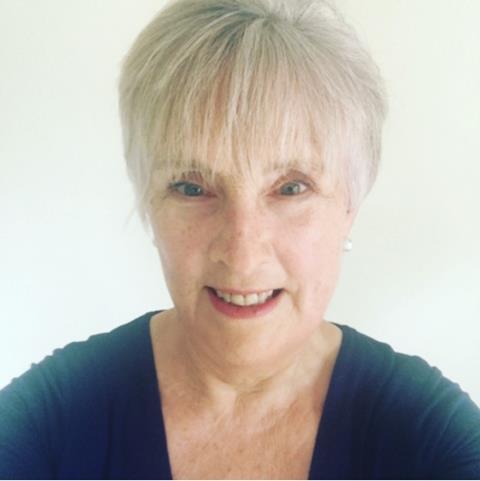Kathleen McAnear Smith shares a snapshot of what it is like volunteering as part of a team who visit young people dealing with mental health crises – and provides helpful tips for anyone thinking of volunteering in their community

Once a fortnight, I am part of our local hospital volunteer mental health team. On a recent Tuesday night I stepped through the automatic hospital doors, donned my face mask, pumped the bio gel and made way for the incoming night staff.
“What you’ve got is a busy night,” said the paediatric nurse when I found my way to A&E. Several young people had either self-harmed or attempted suicide by overdose and our Emerge Advocacy Team is a valued part of mental health assistance.
Emerge Advocacy is a volunteer charity that supports young people ages 10-25 who have gone into hospital due to self-harm or taken an overdose or feel suicidal. Two or more team members visit with the young person in A&E or on a ward most nights of the week, and often follow up in some capacity afterwards. It is not therapy, or a substitute for professional mental health teams, but is a Christian team from local churches who come alongside young people at an exceedingly difficult time in their lives. We are available to listen, to chat, to play Uno or even, if asked, to pray.
While a mature student of theology with chaplaincy at Spurgeon’s College, London, I had the opportunity to study the theory of pastoral care and the role of volunteering. I participated in several volunteer placements and was on a volunteer hospital chaplaincy team for two years before joining the Emerge Advocacy Team.
A privilege
It is an honour to be a part of this team, and this Tuesday night was no exception. I spent time listening to three patients and sat with them as they waited to be seen by a medical professional. While on some nights we simply sit quietly or colour or draw, this night we talked about interests such as music, school, friends; and I listened for opportunities to chat about topics that would give hope for the future. One girl shared her frustration about about all the activities she was no longer able to participate in due to lockdown, and I was able to mention some initial resources for area youth groups, including churches who had online youth connections.
While many young people have said they felt less anxious with us just being alongside them, others have expressed great relief to have a member of Emerge to talk to in a crisis. The parents of the young people have often reported gratitude for this unique service.
Recently Emerge Advocacy won a Queen’s Award for Volunteer Service to the Community for 2021. If you look at the awards list, you will see the enormous number of people around the country giving their time and sharing abilities and skills in so many ways. I love the volunteer work I do, feeling that in a small way I can contribute to someone’s quality of life, but it took me a while to find the right fit of volunteer team.
When joining a team
If you are thinking about joining a community volunteer organisation, perhaps the following questions will help:
Teamwork: Do you want to be part of a team? It may sound like an odd question, but while people often focus on the work carried out by volunteers it is important to remember that being a part of a team requires teamwork. It is helpful to know whether the team is supportive of each other. Do team members have a sense of belonging, and are strengths and weaknesses recognised and appreciated?
Training: Will you be given the training you need? Are you comfortable using technology, especially when so much training is given online? Are there clear guidelines for safeguarding or health and safety?
Commitment: How realistic is your commitment? Are you able to give the necessary time to volunteer in this area? Some groups consider the social aspects of team building to be as important as doing the volunteer work. There may be Christmas parties, Saturday socials, retreat weekends to attend. What expectations are there for to contribute outside of the volunteering hours?
And finally, know why you would like to volunteer. I simply wanted to express my gratitude to the National Health Service for its life-giving support for members of my family.
While I may have just wanted to find a way to say thank you, I gained a whole new awareness of mental health initiatives in this country. I have had the honour of meeting brave young people who face every single day with inspiring courage. I have also met courageous families who support young people day and night through extraordinary mental health situations. As a bonus I have made new friends and learned new skills on the iPad.



























